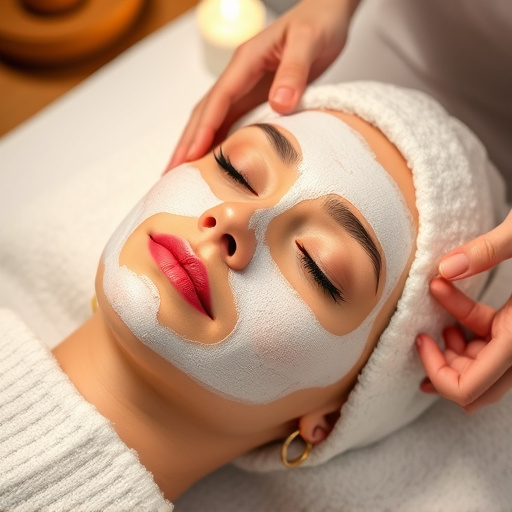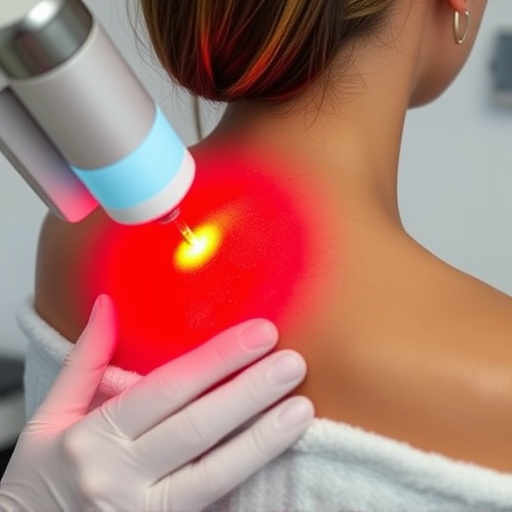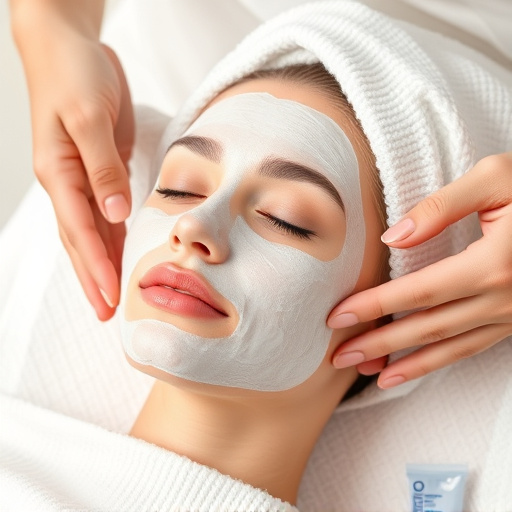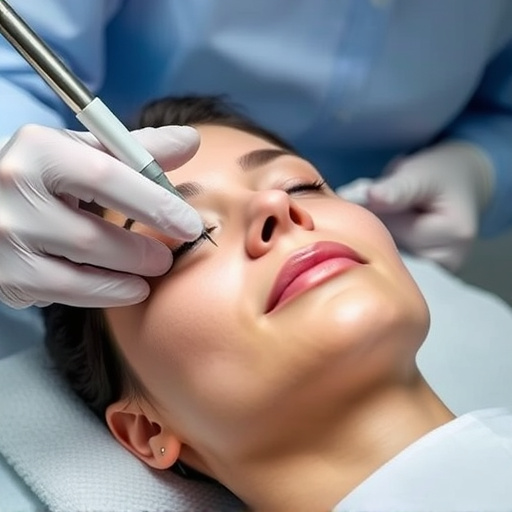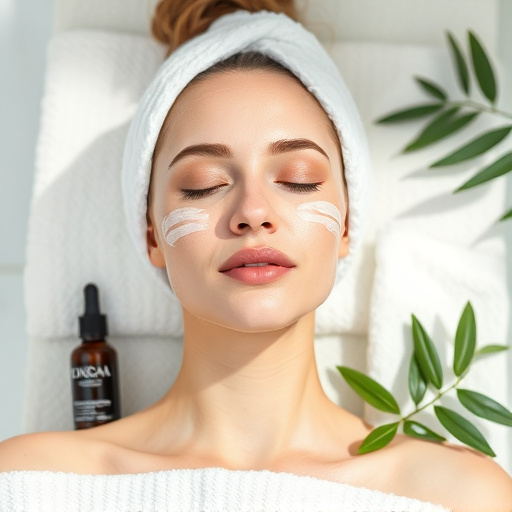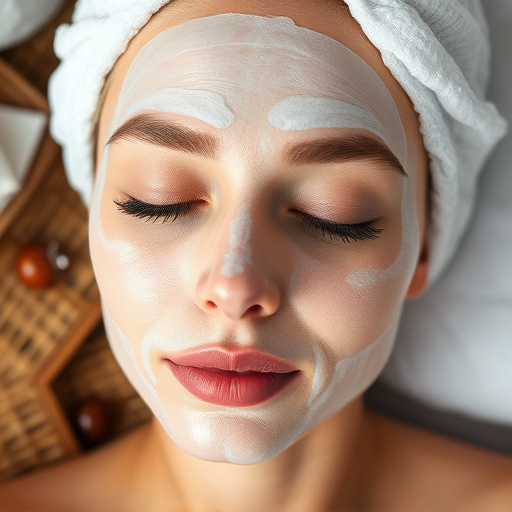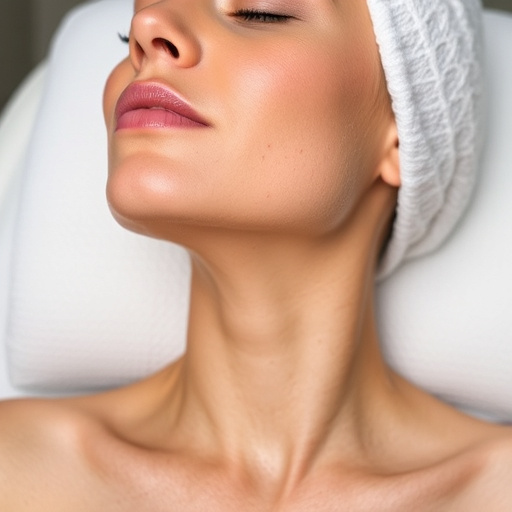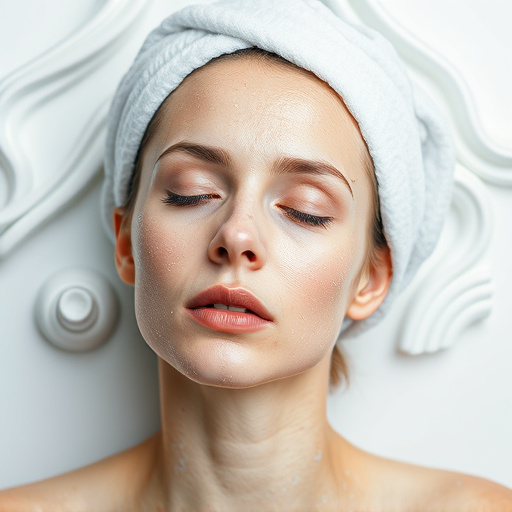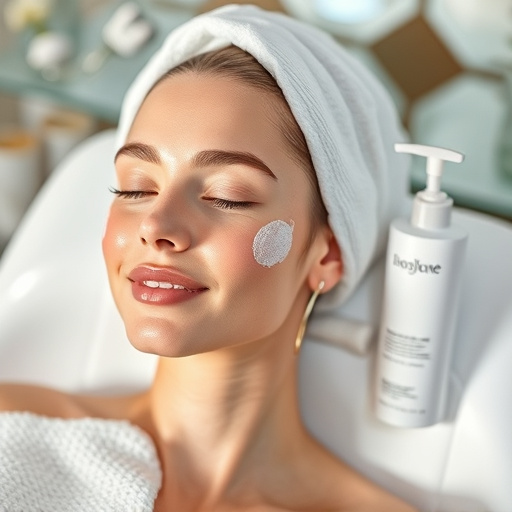Hormonal fluctuations significantly impact adult acne, causing skin cell production and oil secretion issues leading to breakouts. Effective therapy involves balancing hormones and addressing physical factors through targeted aesthetic treatments at medical spas. Personalized strategies incorporating medications and professional skincare procedures offer holistic solutions for clearer skin in adults struggling with hormonally-driven acne.
“Unraveling the complex relationship between hormones and skin health is key to unlocking successful adult acne therapy. This article delves into the intricate dance of hormonal changes and their profound impact on managing stubborn adult acne. We explore how fluctuating hormones can both trigger and mitigate acne outbreaks, offering insights into personalized treatment strategies tailored to hormone-driven acne. By understanding these influences, you’ll gain a comprehensive guide to effective adult acne therapy approaches.”
- Understanding Hormonal Influences on Adult Acne
- The Link Between Hormones and Skin Health
- Personalized Treatment Strategies for Hormone-Driven Acne
Understanding Hormonal Influences on Adult Acne
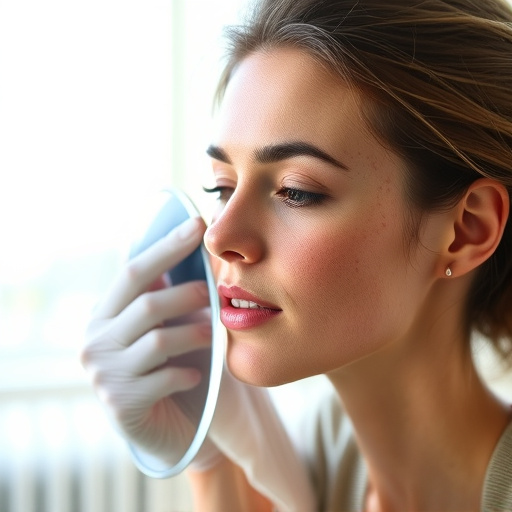
Hormonal changes play a significant role in adult acne, often complicating the quest for effective therapy. Understanding this intricate relationship is crucial for tailoring successful treatment plans. Adult acne, contrary to popular belief, is not merely a teenage condition that lingers. It can arise due to fluctuations in hormones like androgen, estrogen, and progesterone—all of which influence skin cell production and oil secretion. These hormonal shifts can lead to clogged pores, inflammation, and the formation of acne lesions.
For instance, an increase in androgens, often associated with stress or certain medical conditions, can stimulate excess sebum production, trapping skin cells and creating the perfect environment for acne bacteria to thrive. This knowledge is pivotal when considering adult acne therapy, prompting a shift from simple cleansing routines towards more comprehensive approaches. Incorporating targeted aesthetic treatments, such as those offered by medical spas, can address both the physical and hormonal aspects of adult acne, promoting pore refinement and achieving clearer skin.
The Link Between Hormones and Skin Health
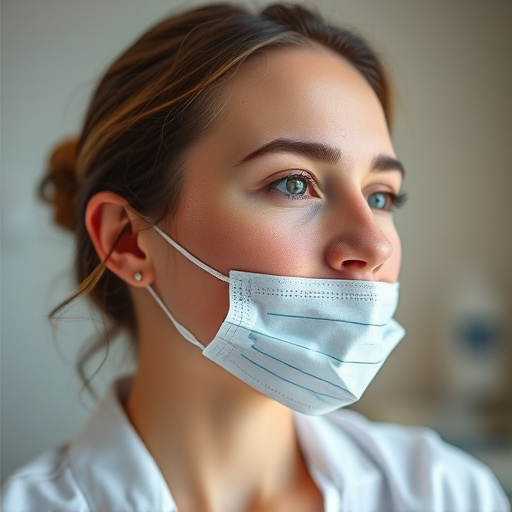
The connection between hormones and skin health is a complex one. Hormones play a significant role in regulating various physiological processes, including those that impact skin conditions like acne. In adults, hormonal fluctuations can significantly affect the success of acne therapy. For instance, changes in estrogen and androgen levels can influence sebum production, making certain periods more susceptible to breakouts. Understanding this link is crucial for developing effective adult acne therapy strategies.
The skin’s natural rejuvenation process and pore refinement are closely tied to hormonal balance. Hormonal changes due to factors like stress, menstrual cycles, or even menopause can cause the skin to produce excess oil, leading to clogged pores and inflammation. Thus, a holistic approach that considers the interplay of hormones and skin care is essential in achieving lasting results for adult acne treatments, ensuring a clearer and healthier complexion.
Personalized Treatment Strategies for Hormone-Driven Acne

When dealing with adult acne heavily influenced by hormonal changes, a personalized treatment strategy is key to achieving successful results. This involves tailored approaches that consider the unique interplay between hormones and skin conditions in adults. Skilled dermatologists can create plans incorporating targeted medications, such as retinoids or oral contraceptives, to regulate hormone production and reduce inflammation. Additionally, professional skincare procedures like hydrating facials and body contouring treatments can provide a comprehensive approach, addressing both the underlying hormonal issues and improving skin texture and appearance.
These strategies focus on identifying and managing the specific hormonal triggers contributing to acne outbreaks. By combining medical interventions with targeted cosmetic treatments, adults experiencing hormone-driven acne can expect improved skin clarity and confidence. A one-size-fits-all approach is unlikely to be effective, so personalized care that considers individual needs and response is essential for optimal adult acne therapy outcomes.
Hormonal changes play a significant role in adult acne, often complicating treatment. Understanding these influences allows dermatologists to tailor personalized strategies that address the root cause. By integrating knowledge of hormonal fluctuations with targeted therapies, we can significantly enhance the success rates of adult acne treatments, offering relief and improved skin health for those affected.



